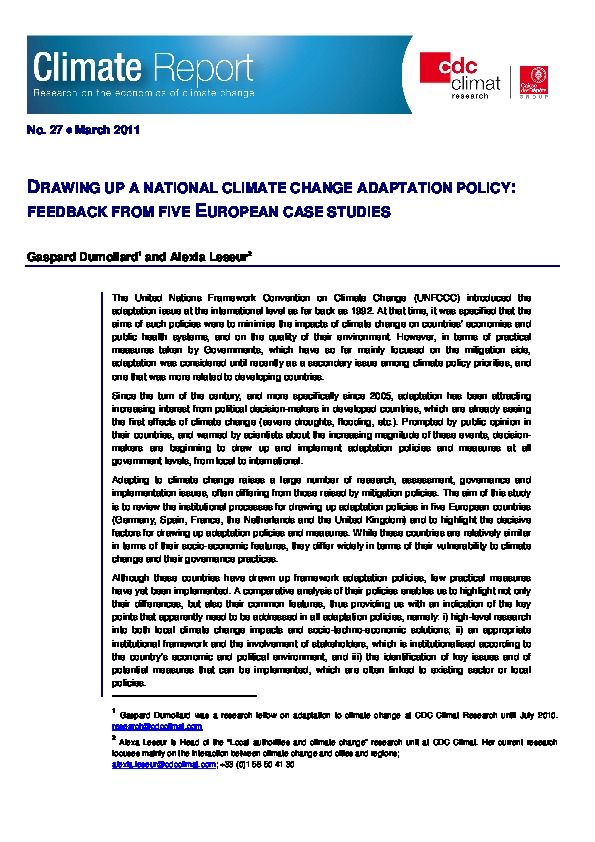Drawing up a national climate change adaptation policy: feedback from five european case studies
By Gaspard DUMOLLARD and Alexia LESEUR
The United Nations Framework Convention on Climate Change (UNFCCC) introduced the adaptation issue at the international level as far back as 1992. At that time, it was specified that the aims of such policies were to minimise the impacts of climate change on countries’ economies and public health systems, and on the quality of their environment. However, in terms of practical measures taken by Governments, which have so far mainly focused on the mitigation side, adaptation was considered until recently as a secondary issue among climate policy priorities, and one that was more related to developing countries. Since the turn of the century, and more specifically since 2005, adaptation has been attracting increasing interest from political decision-makers in developed countries, which are already seeing the first effects of climate change (severe droughts, flooding, etc.). Prompted by public opinion in their countries, and warned by scientists about the increasing magnitude of these events, decisionmakersn are beginning to draw up and implement adaptation policies and measures at all government levels, from local to international.
